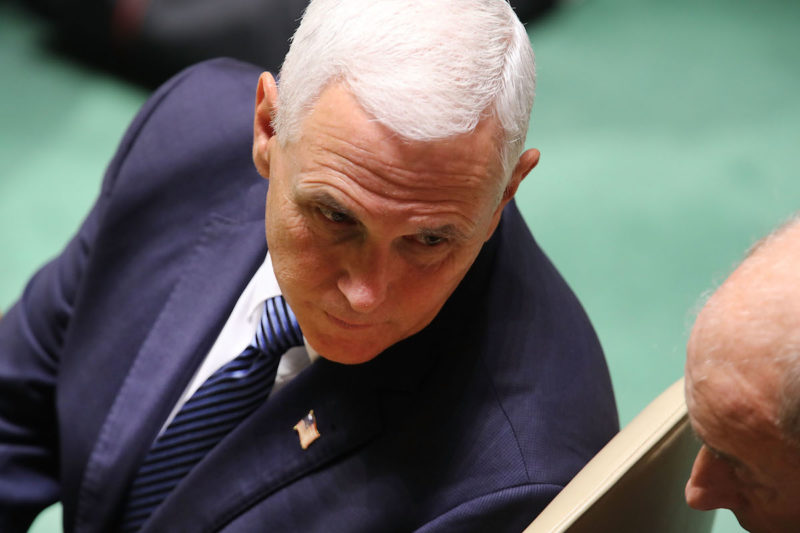Pence’s Religious Freedom Policy Made ‘LGBQ’ Hoosiers Sick—Literally
Data pointing to the detrimental health impacts of discrimination serve as a sobering reminder that the suggestion that LGBTQ people "just go to another baker" doesn't begin to solve the problem.

A new study reveals the scope of psychological damage done by Indiana’s 2015 Religious Freedom Restoration Act (RFRA) to gay, lesbian, bisexual and questioning Hoosiers. Although the study, led by the University of Pittsburgh Graduate School of Public Health’s Center for LGBT Health Research, stops short of suggesting Indiana’s law directly caused LGBQ people to feel physically or mentally unwell, researchers noted that Indiana was the only state of 21 studied where LGBQ people reported a significant spike in the number of “unhealthy days” over the course of that year.
Not only was Indiana the only state whose LGBQ residents reported more “unhealthy days” in 2015, but the number of LGBQ people experiencing those days for at least half the month had nearly doubled between the first and last quarter of the year. Then-Governor Mike Pence signed the first iteration of Indiana’s RFRA on March 26, and then amended it a week later amid national backlash in an effort “clarify” that the law did not void existing non-discrimination protections. But the damage was already done.
The study analyzed 2015 data reported by 21 states to the Centers for Disease Control and Prevention as part of its Behavioral Risk Factor Surveillance System, focusing on the self-reported mental health of 5,000 people who identified as gay, lesbian, bisexual or “unsure” of their sexual orientation. Researchers compared the number of “unhealthy days” reported by residents of each state, using the CDC definition of “the total number of days in the past 30 that people reported that their physical and mental heath were not good,” according to the press release announcing the study’s findings. The Behavioral Risk Factor Surveillance System does include a question that allows participants to identify as transgender or gender-nonconforming, but states are not required to include that question in their surveys.
In the first quarter of 2015, over 24% of LGBQ Hoosiers reported that they had 14 or more “unhealthy days” each month. By the end of the year, that number had jumped to nearly 60%. Heterosexual people in Indiana did not report any significant increase in the number of unhealthy days, and surrounding regions experienced no similar spikes among LGBQ or straight populations. That suggests that something insidious in Indiana was impacting LGBQ people.
Of course, anyone who followed the RFRA debacle in Indiana won’t be surprised by these results. The national outcry in the wake of the law’s passage made Mike Pence a household name—as a deceptively milquetoast villain in LGBTQ circles, and a pious defender of right-wing Christianity in others. Less than a year after the law was passed, the Indianapolis tourism bureau “Visit Indy” reported a statewide loss of an estimated $60 million in revenue from tourism, conventions, and sporting events that took their business elsewhere. The law is still officially in force.
For many, a physical and psychological toll on those targeted feels like a natural side effect of so-called religious freedom legislation, which targets LGBTQ people and allows employers, healthcare providers, adoption agencies, and businesses to deny service and access to those whose existence allegedly offends their “sincerely held religious beliefs.”
But the hard data pointing to the tangible detrimental health impacts such discrimination induces serve as a sobering reminder that the suggestion that LGBTQ people “just go to another baker” doesn’t begin to solve the problem. Seeing your life, your family, and your very existence vilified, debated, and boiled down to a few overly broad talking points on the national stage has a real cost—and it’s one that many in the LGBTQ community, who already experience disproportionately high rates of depression, suicide, addiction, and homelessness, simply can’t afford to pay.

